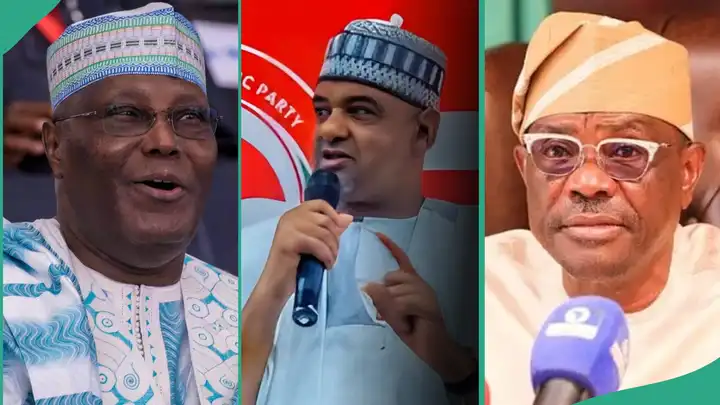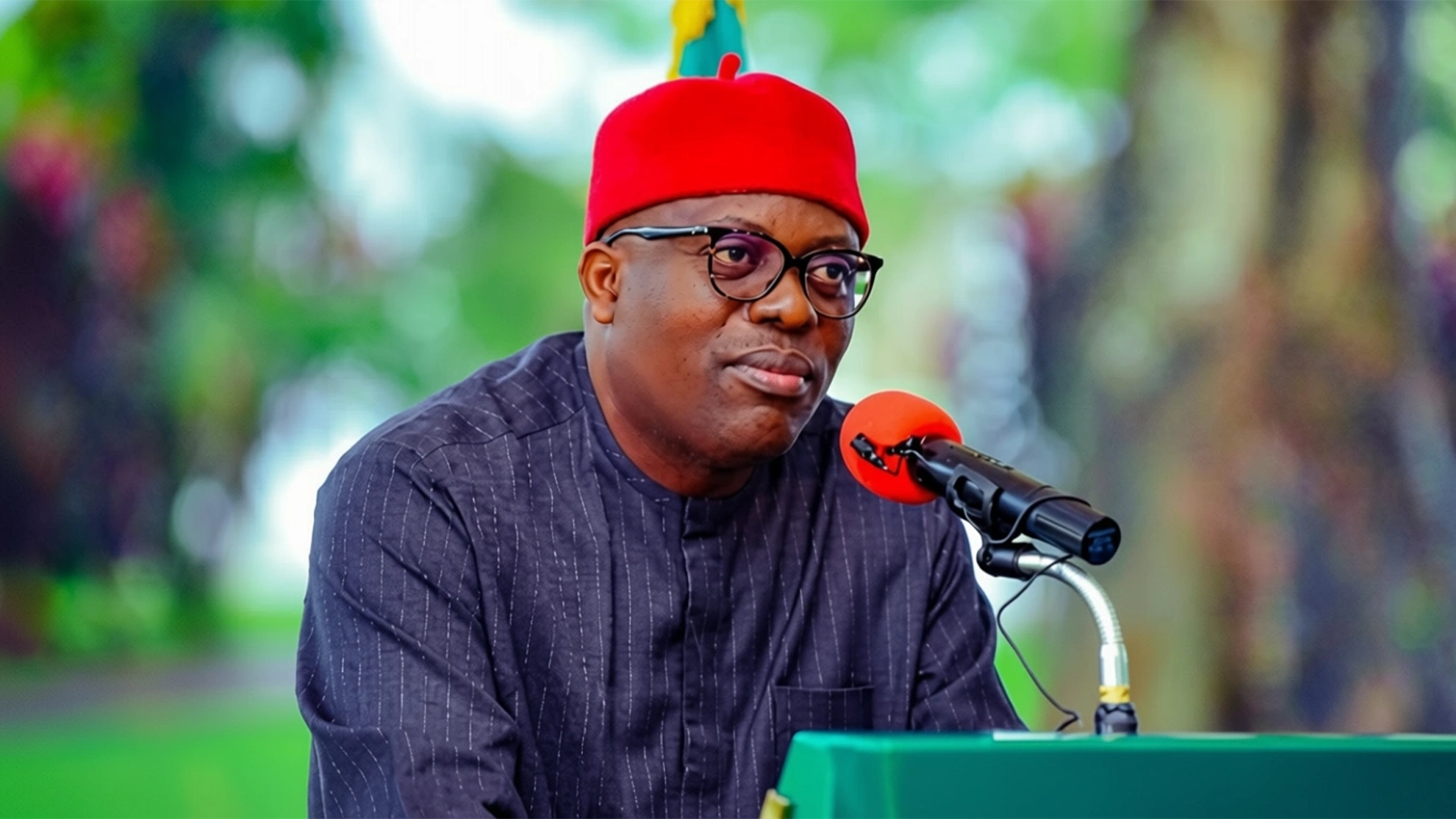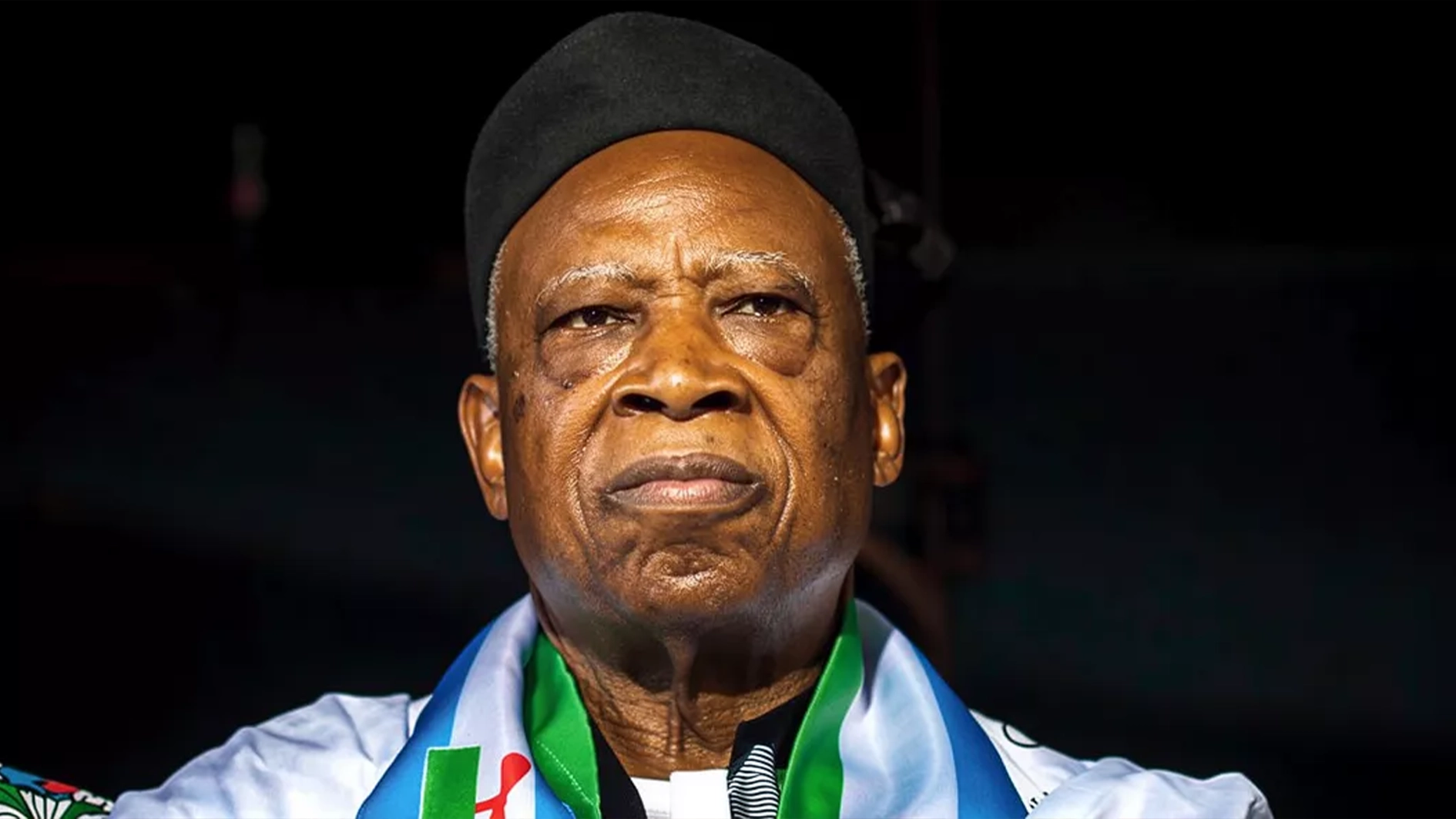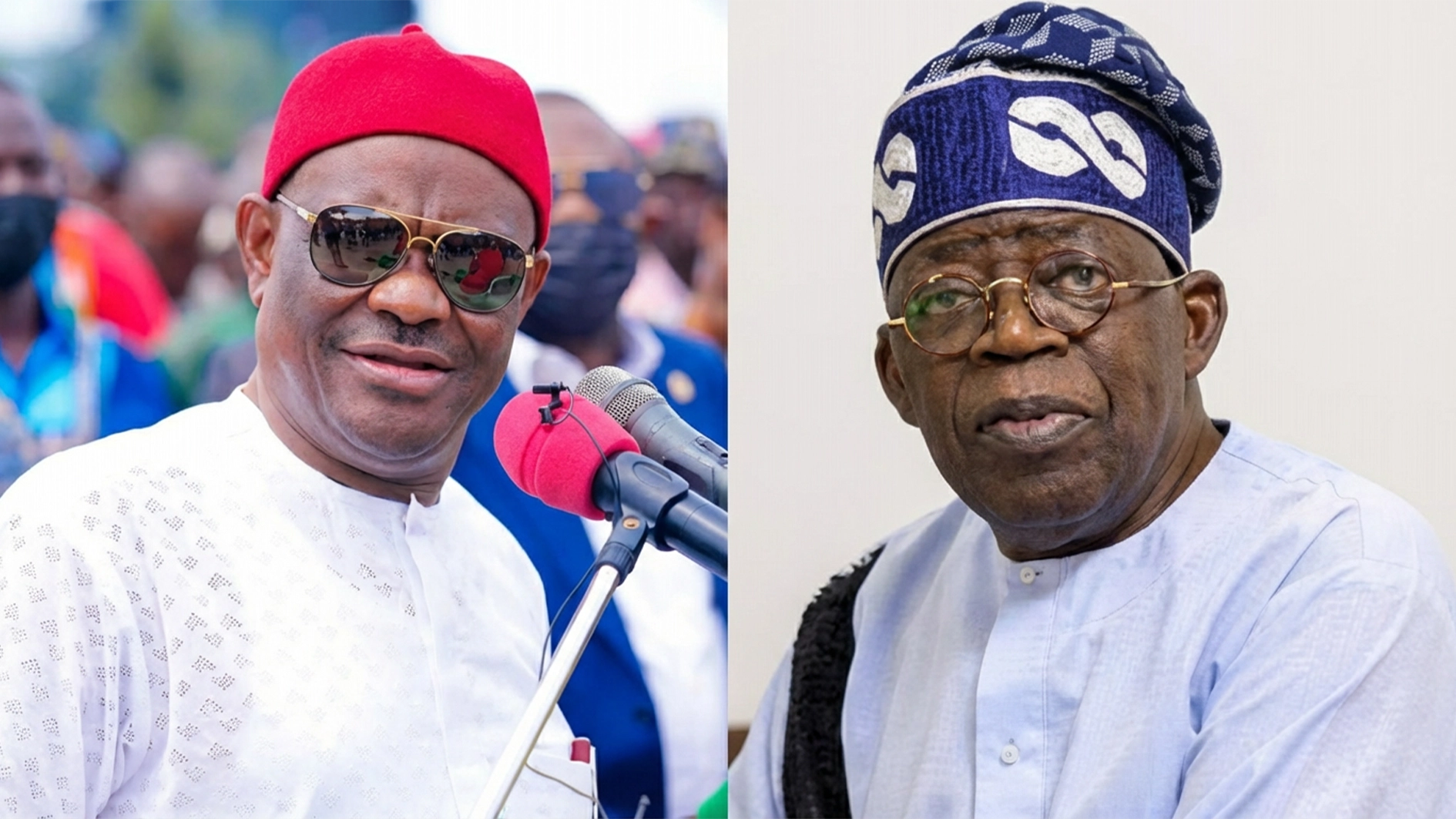
Since the Peoples Democratic Party (PDP) lost power to the All Progressives Congress (APC) in 2015, the ‘umbrella’ has been unable to weather its in-house storms or pose a formidable opposition for a potential comeback. At the centre of its crisis is the same problem of leadership it was set up to solve, AZIMAZI MOMOH JIMOH reports.
The ongoing leadership tussle within the major opposition Peoples Democratic Party (PDP), might again thwart its moves to wrestle power from the ruling APC. This is despite Nigerians’ desperation for change due to the ongoing economic hardship, which the policies of President Bola Tinubu’s administration are orchestrating.
It is obvious that the incumbent President and the ruling party may possibly go into the next general election as an unpopular candidate and party, but with a weaker and or none opposition platform, the hope of voting Mr Tinubu, APC out of power is slim.
For instance, between 2013 and 2015, it took the defunct Action Congress of Nigeria (ACN) and Congress for Progressive Change (CPC) to coordinate other opposition parties into a merger of APC, which later ousted PDP from power. This is a politics the major opposition PDP has been finding difficult to achieve in 12 years since it was shoved out of power.
Like it has been enmeshed in intra party squabbles since last year, the PDP from 2015 to 2019 was engulfed in a serious chairmanship crisis, which factionalised it along the Senator Ali Modu Sheriff-led faction and the National Caretaker Chairman faction, Senator Ahmed Markafi.
The Sheriff-Markafi’s power tussle was worsened due to conflicting court rulings, which simultaneously recognised both parties until the Supreme Court’s judgment of July 2017 that affirmed Markafi as authentic chairman of the party. The implications was that about 14,000 loyalists of Sheriff, led by a former National Vice Chairman, Cairo Ojougboh, defected to APC ahead of the 2019 election, which further weakened the party.
Even though former President Muhammadu Buhari contested the 2019 general election as an unpopular candidate and the fact that there was a serious crisis in the ruling APC, the major opposition PDP failed to leverage on the situation because of its internal wrangling.
Between 2019 and 2023, the party could not also resolve the leadership crisis, which of course pitched its northern stakeholders, led as at then by former Vice President, Atiku Abubakar, who emerged as the party’s presidential candidate and the erstwhile National Chairman, Iyorchia Ayu, against the Southern contenders. The South argued that the North could not at the same time produce the presidential candidate and national chairman with nothing conceded to it. Ayu was asked to step down for a Southern candidate but he refused. This is one of the major reasons adduced by the G-5 PDP governors, led by former governor of Rivers State, Nyesom Wike, to work against Atiku in the presidential election.
Even though it was glaring that APC was also conspicuously weakened by its internal challenges, the PDP could not also take advantage of the situation to re-launch itself back to power.
As preparations for the 2027 general elections commence from next year, 2025, the leading opposition party is getting submerged in leadership tussles, which may also deprive it of electoral success if not addressed.
At present, its crisis has degenerated into a serious battle tearing the leadership and organs of the party apart.
This development accounted for the inability of the National Executive Committee (NEC) to meet since it held its 198th meeting in April, 2024. Conventionally, the NEC, being the highest ruling body, after the party’s convention, ought to meet quarterly to deliberate and take decisions on key issues facing the party.
After the April, 2024 meeting, spirited effort to convene another meeting had been futile. No fewer than four postponements of NEC meetings have been announced by the National Working Committee (NWC) since April.
The persistent leadership crisis in the party is easily blamed for the failure of the meetings of NEC. But many selfish political interests are at play too. Remnants of the crisis that greeted the party’s presidential primary election in 2022, which were partly responsible for the party’s loss in the general elections remains an albatross.
As the crisis degenerates, members have been polarised between the camps of former Vice President, Atiku, who was the presidential candidate of the party, and that of Wike, who is now a minister of the Federal Capital Territory (FCT), Abuja.
Interestingly, Wike at present has one leg in the PDP and the other as a serving minister in the APC-led administration.
Before the 98th meeting of NEC, which held in April, 2024, the camp of Atiku was strongly pushing for the removal of Acting National Chairman of PDP, Ambassador Umar Damagum, to pave way for the election of a substantive chairman from the North Central Zone, which produced ousted Senator Iyorchia Ayu.
That meeting of NEC didn’t succeed in removing Damagum despite serious efforts in that direction.
The camp of Wike celebrated the survival of Damagum in that meeting as its own victory.
Subsequently, the anti-Damagum members of the party made sure that he was severely put under pressure to vacate his seat. To no avail, they called for meetings of NEC to enable party leaders and members to prevail on Damagum to have its way.
Damagum has been accused of refusing to convene NEC meetings for fear of being forcefully removed as a prelude for the election of a substantive chairman. Damagum, is believed to enjoy the support of the influential Wike, who now serves as the de facto leader of the PDP.
Indeed, support from the camp of Wike is the oxygen that has kept Damagum politically alive since PDP lost to APC in the 2023 presidential election.
The leadership tussle has also torn the once united PDP Governors’ Forum, which is another critical organ of the party, apart. At a critical period during the crisis, Governors Umar Fintiri of Adamawa state, Seyi Makinde of Oyo state, among others openly declared support for Damagum, saying he should continue as the acting chairman, while the Bauchi State Governor is leading a pack of others opposed to the continued stay of Damagum.
The PDP Caucus in the National Assembly is also not spared from the damage done to the party by the divisions along Pro and anti-Damagum camps.
But Damagum, on his part, has insisted that he cannot be stampeded out of office despite pressure. He said no amount of blackmail or criticisms would intimidate him out of office.
Damagum, who has been at the epicentre of recent crisis in the main opposition party, told party leaders during the inauguration of reconciliation committee headed by former Osun state governor, Olagunsoye Oyinlola, that the manner some leaders of the party have been making public statements against his style of administration, his unacceptable and also damaging to PDP.
He said: “Let me send a message to everyone talking about Damagum this, Damagum that – I cannot be intimidated. The more you mention me, the more popular I become.”
He said the criticisms had so enhanced his popularity to the extent that he might consider running for the presidency, just as he vowed to proceed with his responsibilities without distractions. Damagum declared, “You can say all sorts of things. I know this is a build-up to the next election. ‘Damagum must go, Damagum must go’. I thank God. People are making me very popular lately. Anytime you open social media or television, it’s ‘Damagum, Damagum’.”
Damagum, however, promised to remain faithful to the constitution of the party in carrying out his responsibilities, just as he warned those seeking to pull him down to be mindful of the effects of such a crisis on the party.
“So, for those interested in seeing Damagum’s downfall, this is a build-up to undermine me before we have NEC. But, if you bring Damagum down and lose the party, what have you achieved? Because in trying to bring me down, you are also bringing down your party,” he stressed.
Meanwhile, the crisis has strained the relationship among the organs of the party. The Board of Trustees (BoT) of the PDP is now at war with the National Working Committee (NWC), which is in charge of the day to day management of the party.
Citing the refusal of the Damagum-led NWC to convene NEC meetings to address the mirage of challenges facing the party, the BoT convened an emergency meeting in Abuja last Thursday and condemned the manner the NWC is treating issues in the PDP.
In anger, the BoT asked the North Central Zonal Caucus of the party to submit a nomination for approval of the National Executive Committee (NEC) as the national chairman of the party.
In a communiqué, after its emergency meeting in Abuja, the BoT asked Damagum, to revert to his position as Deputy National Chairman of the PDP to pave way for the emergence of a substantive chairman from the North Central.
According to the communique, which was read by the chairman of the PDP’s BoT, Senator Adulphus Wabara, “the BoT calls on the leaders of the North Central Zone to immediately convene a meeting of North Central stakeholders with a view to nominating a replacement for former National Chairman, Senator Iyorchia Ayu.”
It reads: “The BoT demands that the NWC should show leadership, honour its word and convene the NEC meeting as scheduled in February 2025. This is critical for resolving pressing issues and charting a clear path forward for the party. Any further postponement will exacerbate existing challenges and may spell doom for our party.”
Meanwhile, a former National Publicity Secretary of the party, Kola Ologbondiyan, has praised the BoT for seeking an immediate nomination of a person from the North Central zone to occupy the position of the party’s National chairman.
He described the decision as “timely, patriotic, and commendable”.
According to Ologbondiyan, “The decision reached at the meeting of the BoT mandating the North Central geo-political zone of the party to nominate a replacement for Senator Iyorchia Ayu is timely, patriotic, and commendable.”
The decision is in consonance with the demand of the North Central zone, which has consistently agitated that the Acting National Chairman, Ambassador Umar Ilyasu Damagum, reverts to his elected position as deputy national chairman and allow the North Central to produce a successor.
While the crisis at the national level continued, PDP is equally contending with another battle at various state levels, and this may weaken its platform ahead of 2027.
In Lagos the party, which has once been the major opposition, was relegated to third position in the 2023 gubernatorial election. In Oyo State, without governor Makinde, the party at present has no leverage of its own just as its internal challenges humbled it in the recently conducted Edo and Ondo governorship elections. In Kano State where it once held sway, it lost control of the state to APC and later the New Nigeria People’s Party (NNPP). The story is also the same in Kaduna, where it could not regain control of the state.






